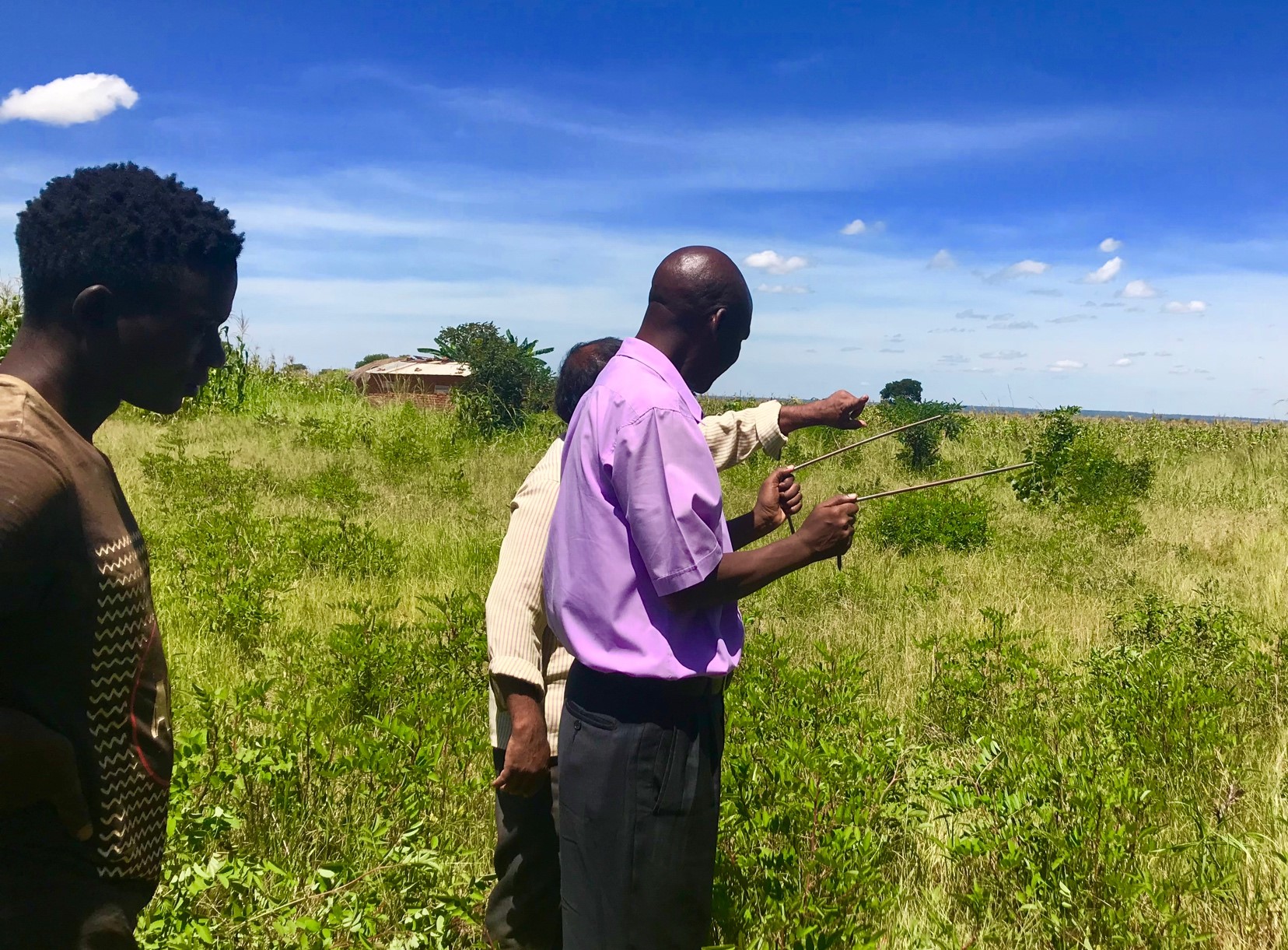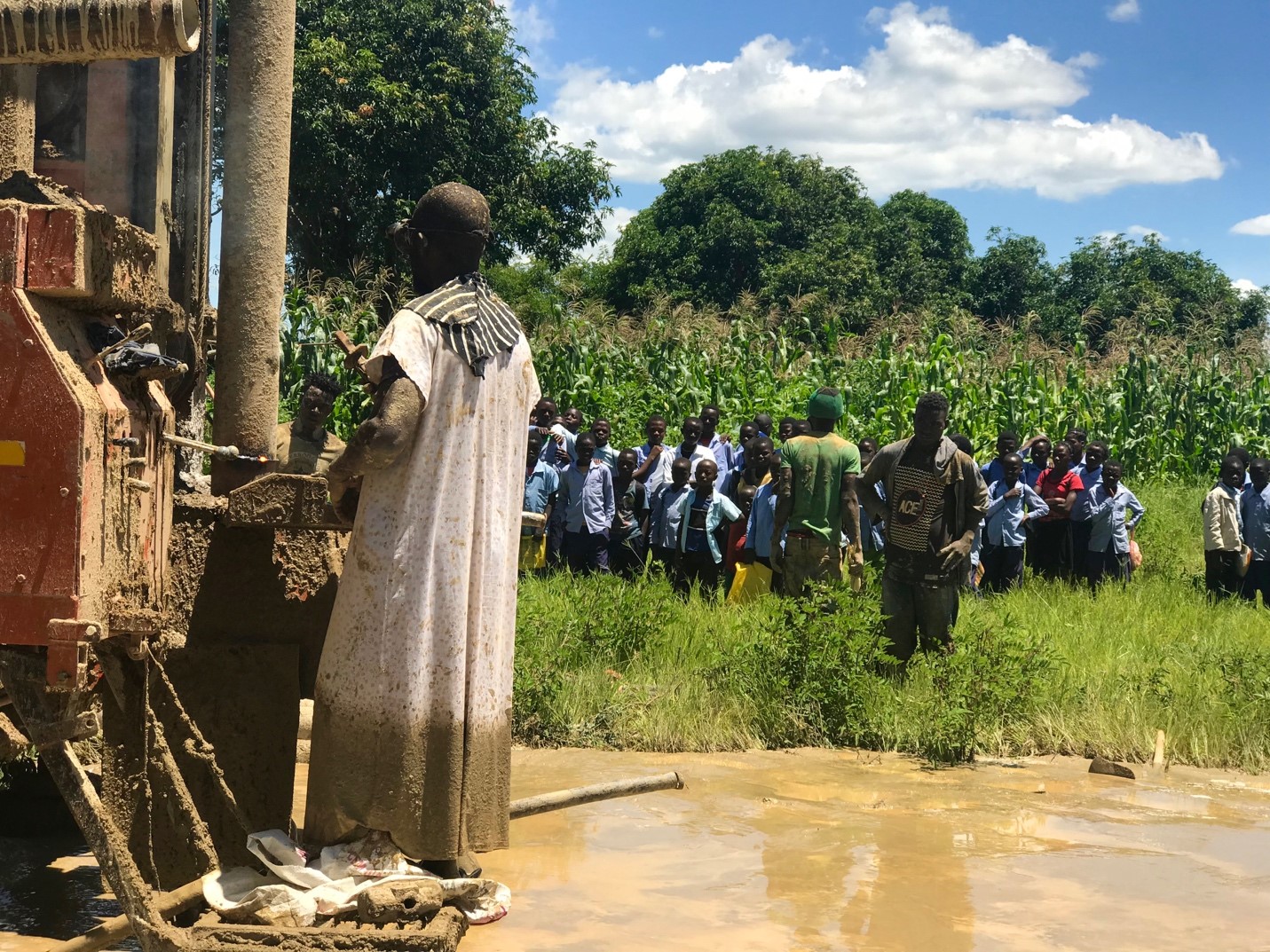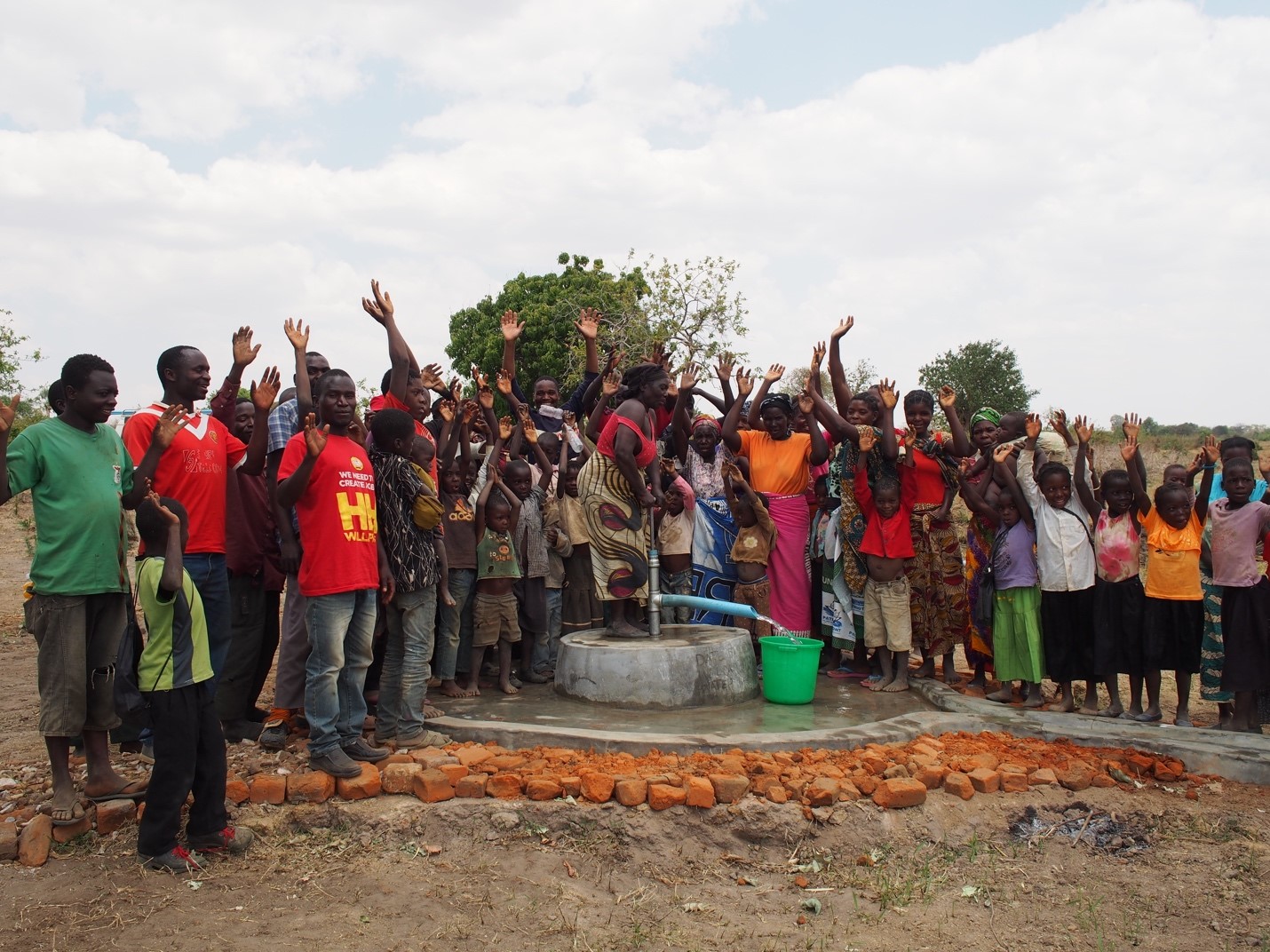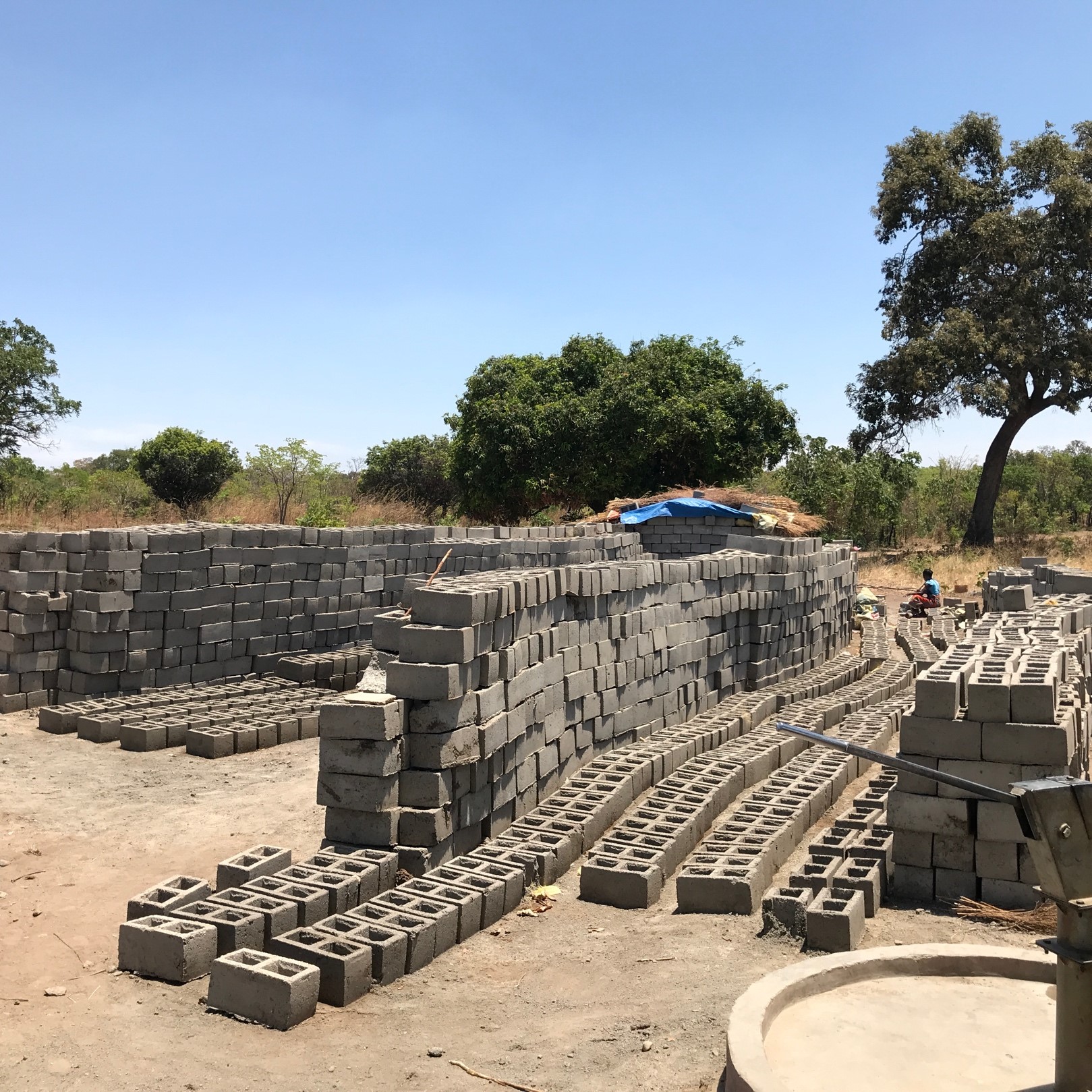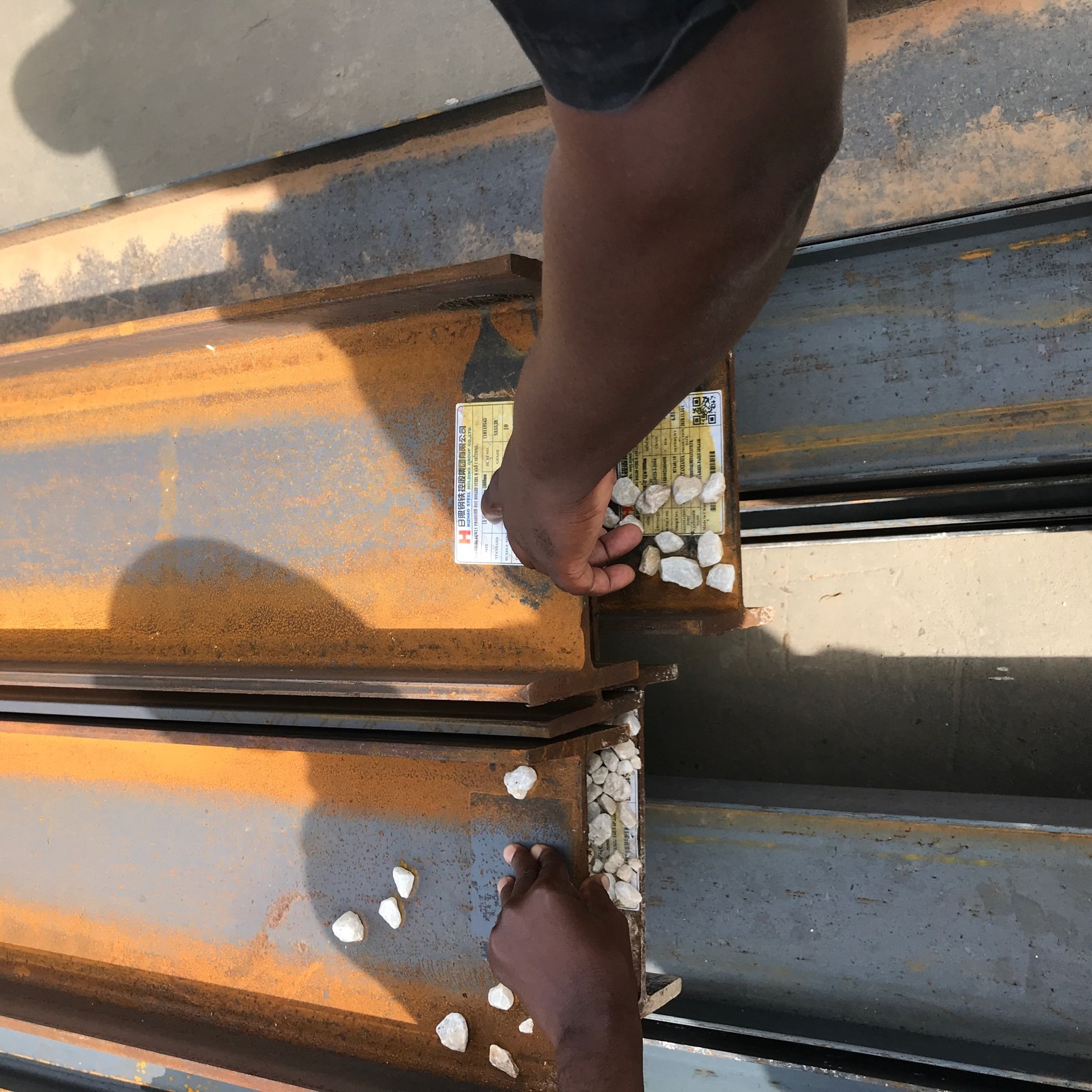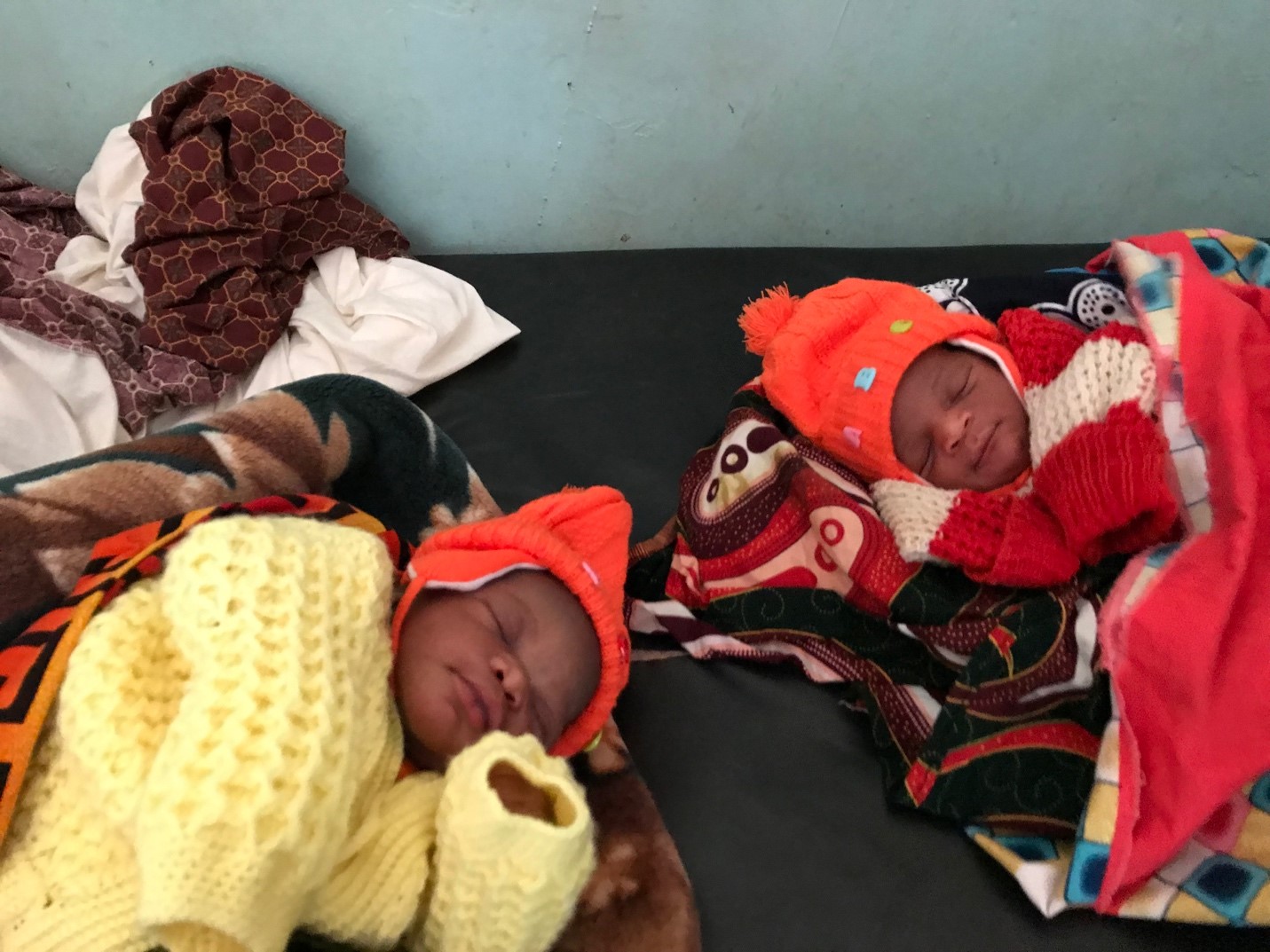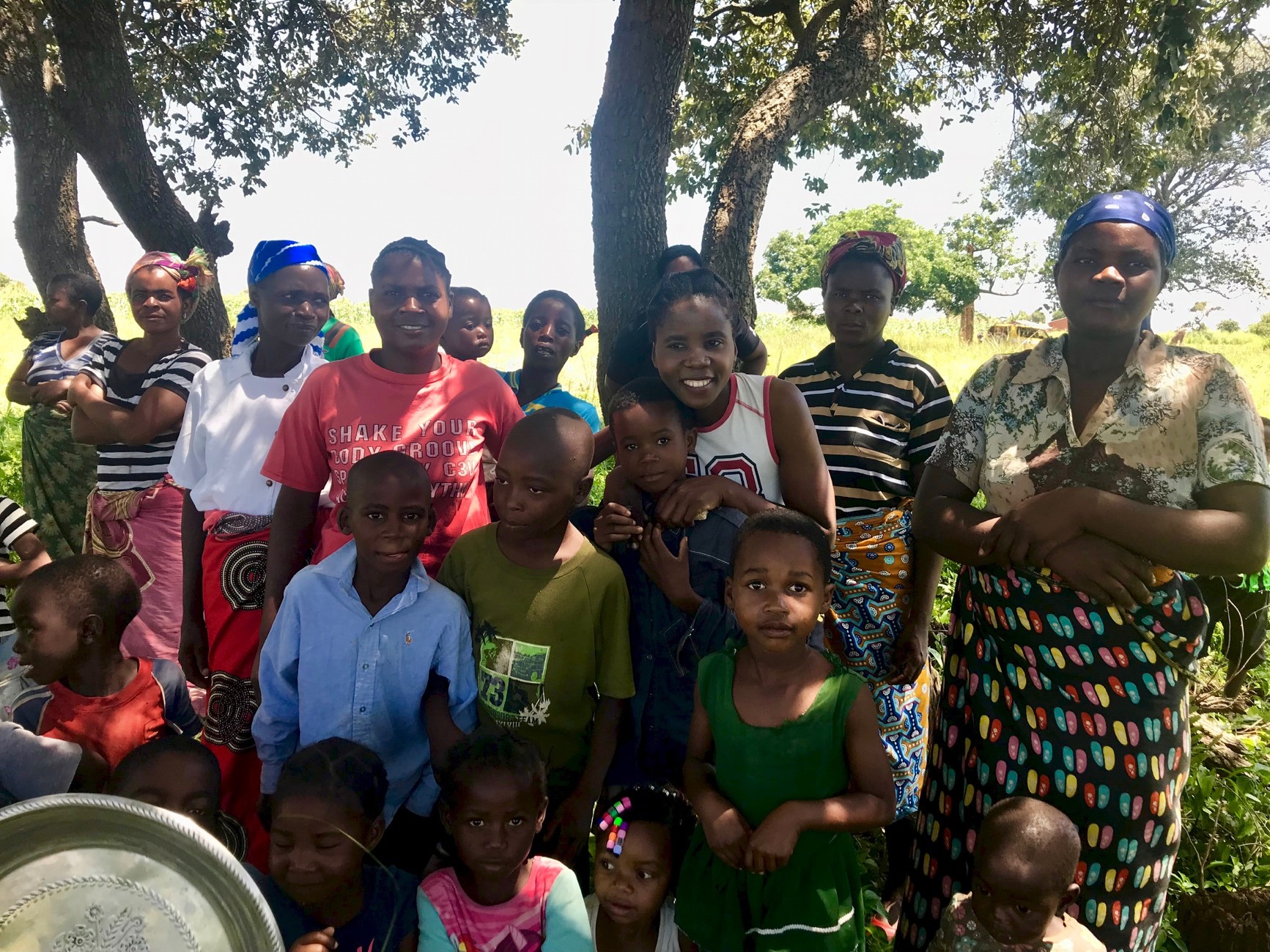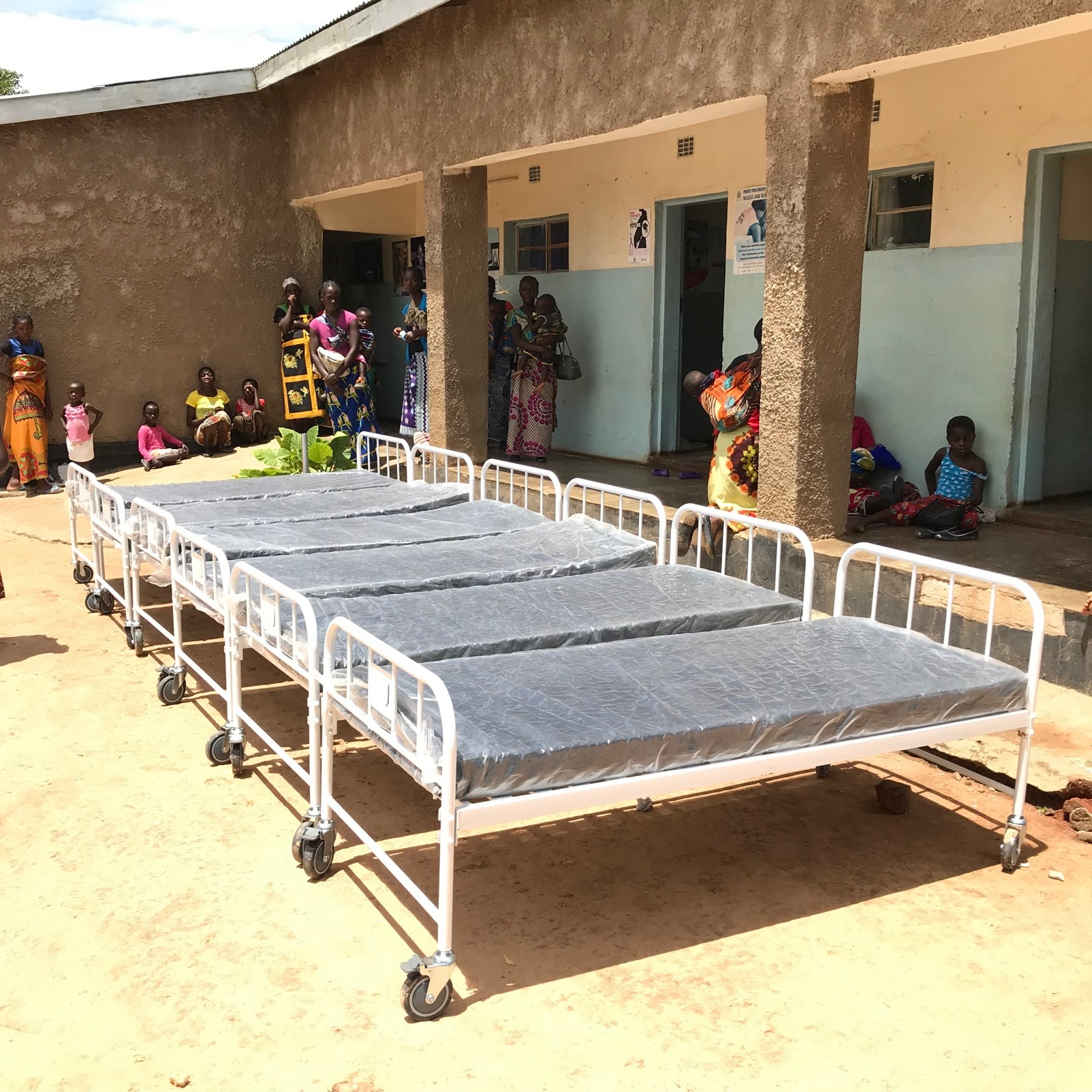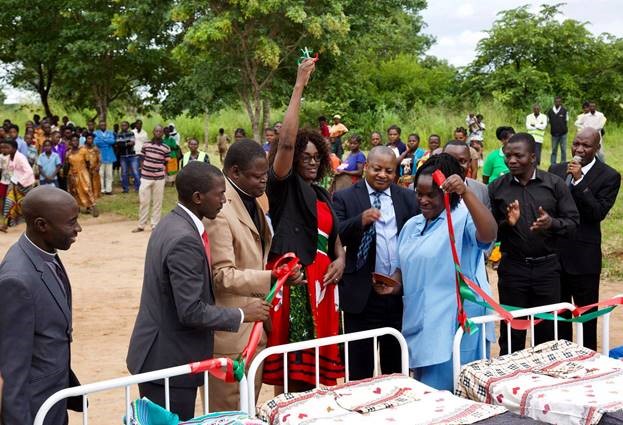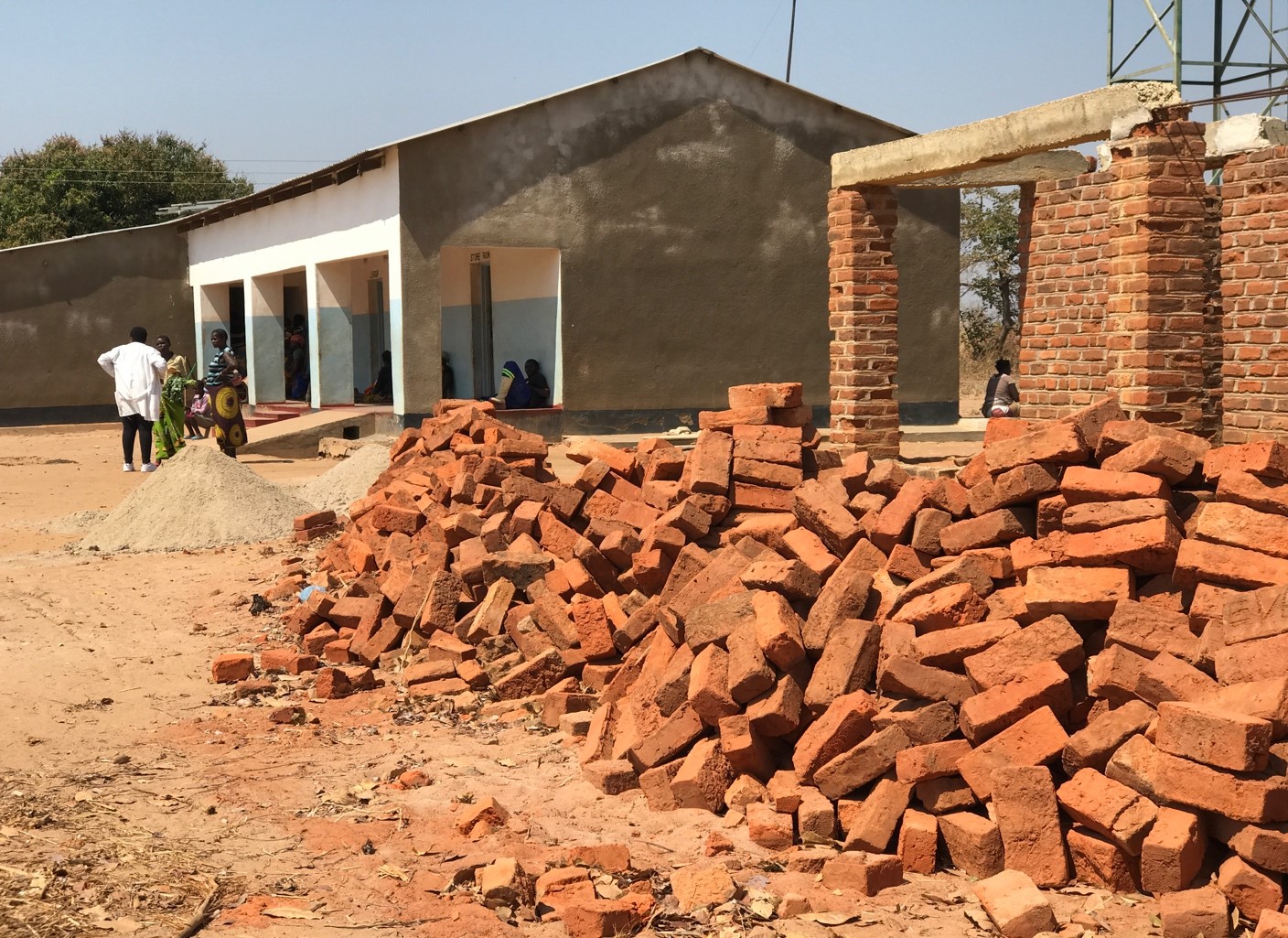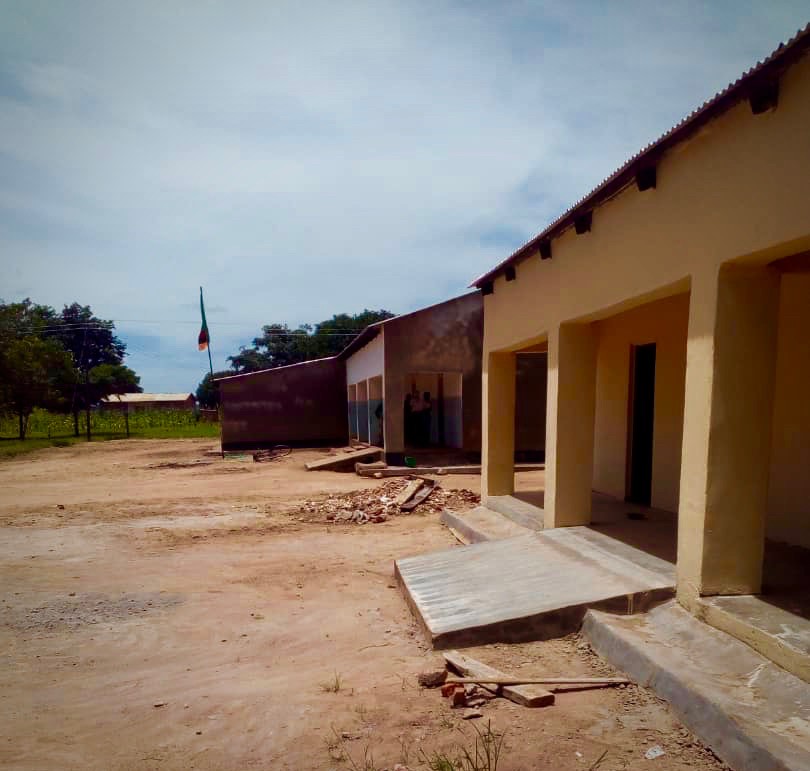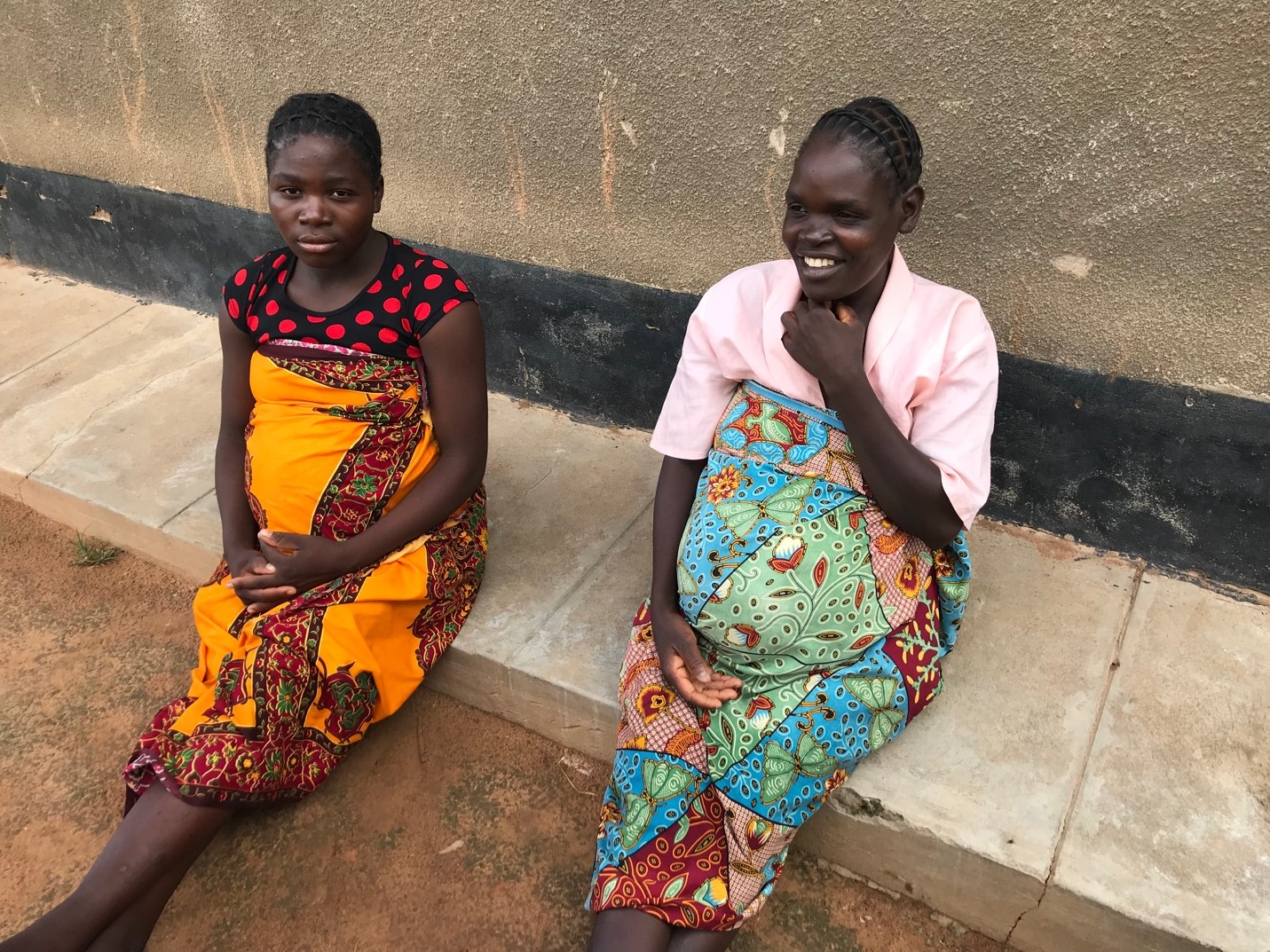A Letter from Charles and Melissa Johnson, serving in Zambia
February 2019
Write to Charles Johnson
Write to Melissa Johnson
Individuals: Give to E200534 for Charles and Melissa Johnson’s sending and support
Congregations: Give to D507589 for Charles and Melissa Johnson’s sending and support
Churches are asked to send donations through your congregation’s normal receiving site (this is usually your presbytery)
On any given day, you will find 20-30 women waiting at the Egichikeni Rural Health Center in the Eastern Province of Zambia. Most of those women are in the last stages of pregnancy, with colorful chitenge fabric wrapped high around their bodies to disguise the evidence of their condition. The rest are either mothers or aunts or sisters who have come to wait with the expectant women until they deliver their babies. There are one or two babies delivered every day. Some women even come from outside the catchment area because they know that the nurse and in-charge officer, Simui Ingundi, has recorded no maternal deaths since he arrived at Egichikeni in 2013. No small feat, considering the maternal death rate in the district in 2018 was 107 per 100,000 — one of the highest in Zambia.
The CCAP rural health center in Egichikeni provides healthcare to the community of over 7,000 people in over 50 villages. Until recently, the clinic faced the challenge of no beds and an uncompleted mother care shelter. Because of this challenge of distance, pregnant women are encouraged to come and stay at the clinic for the last weeks of their pregnancy to prevent complications. The lack of beds and unfinished mother care shelter was a huge challenge for the clinic staff and for the women and their families who came to wait for the delivery of their babies.
Phalaza, a rural community very close to the Malawi border, has a population of over 5,000 people, and the nearest clinic is 16 km (almost 10 miles) away. The Phalaza community also shared stories about challenges traveling long distances to receive medical care was causing their community. The most heartbreaking stories were about women not making it to that faraway clinic before delivering their babies, and even worse, children dying from preventable diseases. The CCAP Zambia Synod approved the construction of a new clinic in Phalaza in 2013, but due to lack of resources has been unable to begin construction.
I don’t know about you, but when I was living in the U.S., one of my considerations when looking for a doctor or medical facility was proximity to my home or work. None of us wants to travel long distances to receive medical care. Can you imagine being heavily pregnant, in labor or ill and having to travel long distances by foot or bicycle?
Charles and I have been partnering with the Church of Central Africa Presbyterian, Synod of Zambia (CCAP) for the past 3 years. It’s hard to believe we are entering the final year of our first term. Last summer, we spent four months traveling the U.S. during our interpretation assignment (look for us again this summer!) telling the story of CCAP and their holistic ministry to over 50 PC(USA) congregations. We shared the joys, successes, challenges and priorities of the church here as CCAP Zambia strives to grow their holistic ministry. Some of you heard the above stories when we visited your church. They were told with a prayer in my heart that you would feel the pain happening in the other parts of your body — the parts of the body of Christ all the way in Zambia — and would respond to those needs. You did! And now, because of your response as the hands and feet of Christ in the U.S., people here in Zambia are facing fewer challenges and improved health.
Several congregations have joined Charles and me in partnership with CCAP. Liverpool First Presbyterian Church in Liverpool, New York, raised funds to provide new hospital beds and mattresses for Egichikeni Rural Health Center. We prayed for 10 new beds, but because of the generosity of the people in Liverpool, we were able to purchase 20 beds! This was more than enough for Egichikeni, so we were also able to provide some new beds to the other CCAP clinic in Ndaiwala. Liverpool First Presbyterian Church had also previously provided 7 shallow wells to provide safe, clean drinking water for communities in Zambia. Faith Presbyterian in Blue Ridge, Georgia, has also provided funds for completion of a solar lighting project at the clinic in Ndaiwala.
Central Presbyterian Church in Lafayette, Indiana, felt called to “Raise the Roof” for the Egichikeni mother care shelter. This building has truly been built in partnership, a partnership between CCAP, Central Presbyterian, and the local government who provided some of the funds to start the construction in 2015. Through this partnership, the building is now complete and painting is underway. We hope that the handover of the building will be in just a few weeks.
Several months after we returned to Zambia, Lexington Presbyterian Church in Lexington, Virginia, contacted me to ask how they could help make the clinic in Phalaza a reality. They made a very generous gift to jumpstart a fundraising effort they are leading by contacting over 200 people in churches and presbyteries all across the country. We are well on our way to raising the necessary funds. In fact, just today I received word that another congregation, First Presbyterian in Shelbyville, Indiana, has also made a generous donation that puts us over halfway to raising the funds necessary to complete the new clinic. As I’m writing this newsletter, I am back in Phalaza, sitting under the shade of the trees watching the new borehole being drilled that will supply a clean, safe source of drinking water not only for the clinic, but for the church and the entire community.And you are not just helping with health-related projects. Charles has received grants from Bryn Mawr Presbyterian in Bryn Mawr, Pennsylvania, and First Presbyterian Church in Shelbyville to improve the Chasefu Theological College and Agricultural Income Generating Activity (AIGA).
In each one of these community development projects, the church and the community took the first step, but as with most big things that are worth doing, none of us is able to do it all without help. In our Reformed tradition, Presbyterians recognize we are a part of a larger body of Christ. But that body doesn’t end at the walls of our church buildings, our city limits, state lines or national borders. That body encompasses each and every child of God around the world. Because we all have limitations and are all united in Christ, we believe we are called to mission in partnership because, after all, we are better together.
We are both so very grateful for the partnership between PC(USA), CCAP Zambia and local congregations in the U.S. Your prayers and financial gifts make the projects that once seemed beyond reach attainable. Because of our one body, we truly are better together!
Melissa and Charles
![]() You may freely reuse and distribute this article in its entirety for non-commercial purposes in any medium. Please include author attribution, photography credits, and a link to the original article. This work is licensed under a Creative Commons Attribution-NonCommercial-NoDeratives 4.0 International License.
You may freely reuse and distribute this article in its entirety for non-commercial purposes in any medium. Please include author attribution, photography credits, and a link to the original article. This work is licensed under a Creative Commons Attribution-NonCommercial-NoDeratives 4.0 International License.
